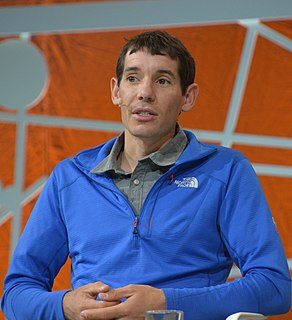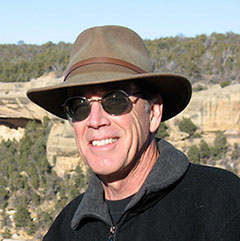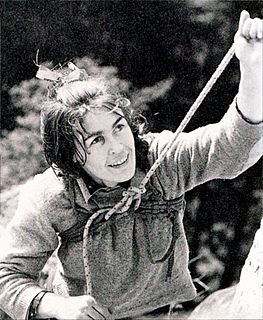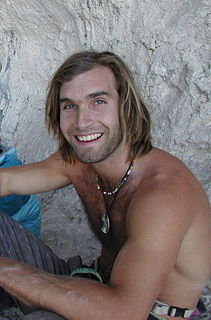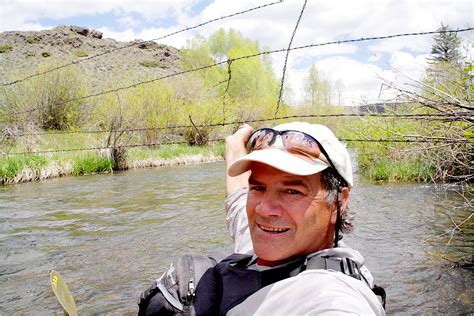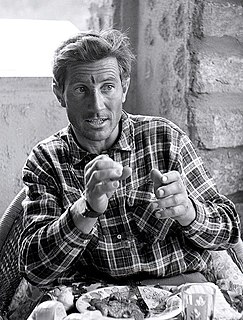A Quote by Alex Honnold
Free soloing is almost as old as climbing itself, with roots in the 19th century. Climbers are continuing to push the boundaries. There are certainly better technical climbers than me. But if I have a particular gift, it's a mental one - the ability to keep it together where others might freak out.
Related Quotes
Many have questioned the quality of this sort of achievement, deploring the use of pitons, tension traverses and expansion bolts, but the record speaks for itself. This is a technical age and climbers will continue in the future to look for new routes. There is nothing more satisfying than being a pioneer.
We [climbers] demonstrate in the most stunning way of all - at the risk of our lives - that there is no limit to the effort man can demand of himself. This quality is the basis of all human achievementit can never be proved enough. I consider that we climbers - that I - serve all humanity. We prove that there is no limit to what man can do.
The best climbers no longer go to the 8000ers, but to the most difficult mountains in the world which are 6000 or 7000-meter-peaks. There they find any kind of playground. But it is a pity that the really good climbers have fewer opportunities to finance their expeditions because so much attention is taken away by the Everest tourists.
In a general sense, I think it's bad to bring too much money into climbing, since it takes away a little from the beauty of the mountains. But at the same time, I can't blame the Nepali government - or the Indian, Pakistani or Chinese, depending on where you're climbing - from wanting to capitalize on foreign climbers.
Seven years ago, when I started free soloing long, hard routes in Yosemite - climbing without a rope, gear or a partner - I did it because it seemed like the purest, most elegant way to scale big walls. Climbing, especially soloing, felt like a grand adventure, but I never dreamed it could be a profession.
